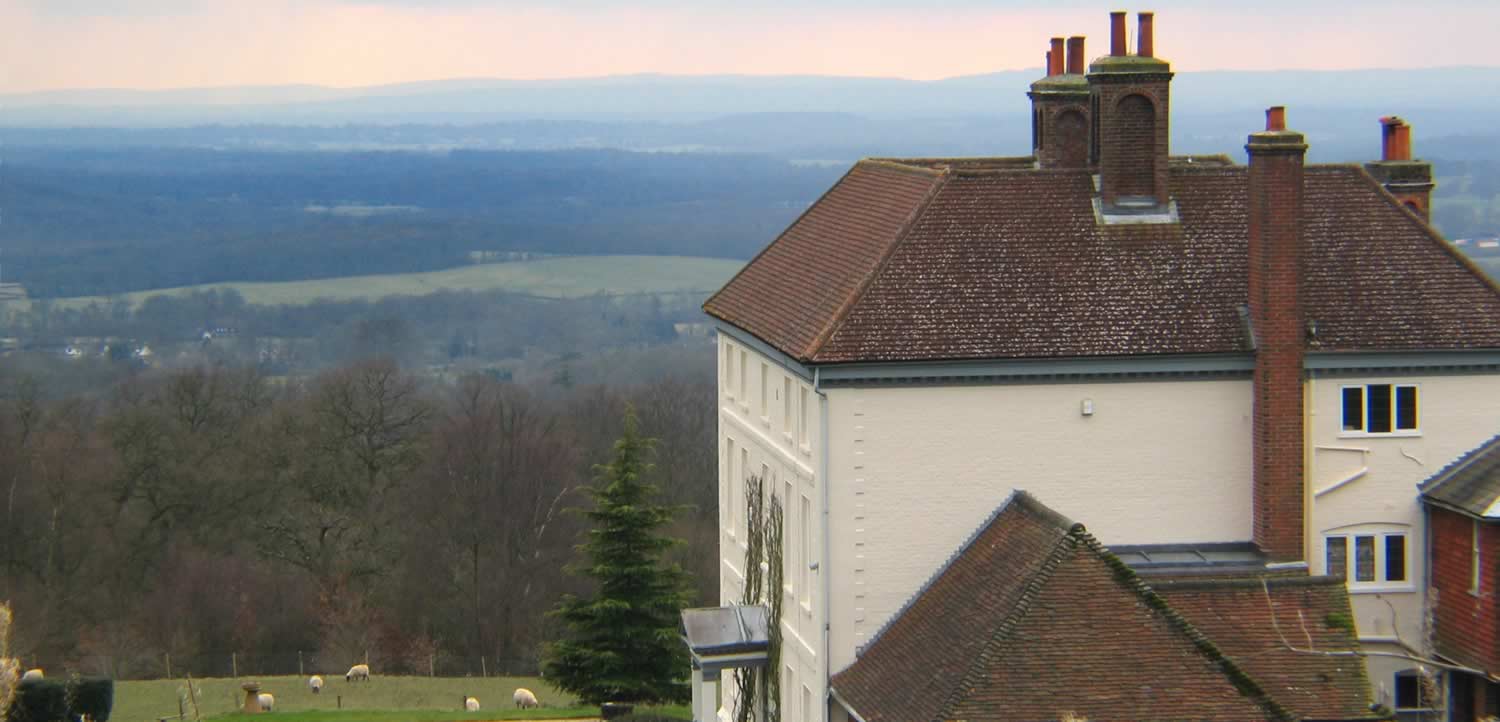
IT IS WITH GREAT SADNESS THAT WE ANNOUNCE THE PASSING OF OUR PRESIDENT SIR ANDREW DAVIS CBE. R.I.P.

‘Tanhurst’, only a short distance from Leith Hill Place, was the family home of the Vaughan Williams’s.
A Timeline
Vaughan Williams’ mother was Margaret Wedgwood. She was a direct descendant of pottery magnate, Josiah Wedgwood, and a niece of Charles Darwin, author of the Origin of Species. Her family home was ‘Leith Hill Place’, a farm estate near the village of Coldharbour, a few miles from Dorking in Surrey. Vaughan Williams’ father was Arthur Vaughan Williams, a vicar whose family was of Welsh origin and had distinguished itself in the law. The family home, only a short distance from Leith Hill Place, was known then as it is today, as ‘Tanhurst’.
1868–1895
1868
Arthur Vaughan Williams and Margaret Wedgwood marry on 22 February at Coldharbour Church, near Dorking.
Shortly after, Arthur accepts the ‘living’, and he and Margaret settle into the Vicarage at Down Ampney, in Gloucestershire.
1872
Ralph (pronounced ‘Rafe’) Vaughan Williams is born at the Vicarage in Down Ampney on 12th October.
1875
Vaughan Williams’s father dies on the 9th February.
The family returns to live at Leith Hill Place near Dorking in Surrey, the home of Margaret Wedgwood’s parents.
1879
Ralph receives first lessons in violin. Soon after he begins to write little operas for a toy theatre which was given to him as a present. His manuscript book is entitled, “Overtures by Mr R.V. Williams”.
1880
Takes a correspondence course in musical theory and passes.
1883
Starts school at ‘Rottingdean’ in Sussex.
VW takes piano lessons and is introduced to Bach who was to become a lifelong passion.
1884
During his schooldays, attends concerts. Is especially impressed by the music of Wagner.
Performs Raff’s Cavatina at a school concert.
1887
Ralph starts at Charterhouse in Godalming.
1888
Gives a concert at school of compositions by himself and his friend H. Vivian Hamilton.
1890
Visits Munich where he hears Wagner’s Die Walkerie. VW admired Wagner’s music all his life.
In September, a month before his 18th birthday enters the Royal College of Music with the intention of studying composition under Parry.
He is not permitted to study composition until he passes Grade 5 Harmony which he studies with F. E. Gladstone, composition with Hubert Parry and organ with Walter Parratt.
1892
In October enters Trinity College, Cambridge to read History but continues to travel to London to attend Parry’s classes.
Studies organ under Alan Gray.
Mahler (aged 32) comes to London to conduct Tristan und Isolde which hugely impresses RVW.
1894
Takes Mus. Bac. degree at Cambridge.
1895
Takes BA at Cambridge (History). Returns to the Royal College of Music where Sir George Grove is succeeded by Hubert Parry.
Begins composition lessons with Stanford.
Becomes the organist at St Barnabas in South Lambeth.
1896–1906
1896
Visits Bayreuth.
1897
Marries Adeline Fisher at All Saint’s Church, Hove, Sussex, 9 October. His ‘working’ honeymooon means going to Berlin to study with Max Bruch and where he hears an uncut performance of The Ring in addition to a variety of music.
1898
Obtains Fellow of the Royal College of Organists (FRCO) diploma by examination.
Settles at 16 North Street, Westminster then moving to 5 Cowley Street.
1900
Meets Cecil Sharp. Writes Bucolic Suite for orchestra.
Attends first performance of Elgar’s Dream of Gerontius on 3 October, in Birmingham.
1901
Takes Mus. Doc at Cambridge.
First published composition, Linden Lea.
1902
Gives University Extension lectures (and writes articles for The Vocalist for several years.
Bucolic Suite first performed at Bournemouth.
1903
Begins to collect folk-songs. Composes Willow Wood and other vocal works.
1904
Meets Percy Dearmer and begins work on the English Hymnal.
Composes In the Fen Country, The House of Life, and Songs of Travel.
Goes on folk-song collecting expeditions.
1905
First Leith Hill Musical Festival, 10 May.
Moves into 13 Cheyne Walk in November and where he lived for the next 24 years.
Composes Toward the Unknown Region and begins work on A Sea Symphony.
1906
English Hymnal published. Composes three Norfolk Rhapsodies using collected tunes.
1907–1913
1907
Toward the Unknown Region performed. Goes to Paris to study with Ravel.
1908
Composes String Quartet in G minor.
Begins work on On Wenlock Edge.
1909
Music for The Wasps performed at Cambridge.
On Wenlock Edge performed.
1910
A Sea Symphony, first performed at the Leeds Festival.
Tallis Fantasia, first performed at the Three Choirs Festival, Gloucester.
Edits second volume of Purcell’s Welcome Songs.
1911
Begins work on Hugh the Drover.
1912
Conducts and arranged music for Benson’s seasons of plays at Stratford-upon-Avon.
Composes Phantasy Quintet and Fantasy on Christmas Carols.
1913
A London Symphony, (No 2). Later revised at least twice.
1914–1924
1914
First performance of A London Symphony, 27th March and conducted by Geoffery Toye.
Enlisted as a private in the Royal Ambulance Medical Corps.
The Lark Ascending was partially written then revised in the intervening years after the Great War.
1915
Posted to Dorking with 2/4 London Field Ambulance.
1916
Posted to France. Unit is involved in the Battle of the Somme. Then posted to Salonika.
1917
Commissioned as a Lieut. Posted to France.
1918
Served in France. Appointed Director of Music, First Army BEF.
1919
The Honoury Degree of Doctor of Music (D.Mus honoris causa) was conferred on Vaughan Williams at Oxford.
His A Sea Symphony, performed by the Oxford Bach Choir and conducted by Hugh Allen, was given in the Sheldonian in celebration of the 250th anniversary of its opening.
1920
The Lark Ascending first public performance at Shirehampton Public Hall, Bristol, on 15 December 1920.
1921
Appointed Conductor of the Bach Choir.
1922
A Pastoral Symphony performed, Shepherds of the Delectable Mountains performed at the RCM.
First visit to America. Mass in G minor performed.
1923
Old King Cole performed at Cambridge.
1924
Hugh the Drover staged at the Royal College of Music under Malcolm Sargent.
1925–1930
1925
Flos Campi; Concerto Academico performed. Songs of Praise published.
1926
Sancta Civitas performed in Oxford. On Christmas Night staged in Chicago.
1927
Composes Along the Field.
1928
Resigns from the Bach Choir. Co-edits The Oxford Book of Carols with Martin Shaw.
1929
Moves to Dorking. Sir John in Love staged at the Royal College of Music. Completes Fantasia on Sussex Folk Tunes for Pablo Casals.
1930
Job – First performance at the Norwich Festival.
1931–1943
1931
Job staged in London
1932
Gives the Mary Flexner Lectures at Bryn Mawr on National Music.
1933
Piano Concerto performed in London.
1934
Death of Gustv Holst. Suite for Viola performed in London.
1935
Symphony 4 in F minor performed under Boult, BBC Symphony Concert.
Created Order of Merit.
1936
The Poisoned Kiss performed at Cambridge 12 May.
Five Tudor Portraits performed at Norwich.
Dona Nobis Pacem performed at Huddersfield.
1937
Festival Te Deum performed at George VI’s Coronation in Westminster Abbey.
Riders to the Sea staged at The Royal College of Music.
1938
Meets Ursula Wood for the first time 31st March.
Serenade to Music performed at the Royal Albert Hall.
1939-43
Film music, war work, lecturing, writing.
DIves and Lazarus performed in New York.
1943–1952
1943
“Symphony No 5” Symphony in D major performed under RVW.
1944
Oboe Concerto performed. Second String Quartet (‘For Jean on her Birthday’) performed in London.
Offers Leith Hill Place to the National Trust.
1945
Thanksgiving for Victory.
1946
Introduction and Fugue for two pianos composed.
1947
The Loves of Joanna Godden.
1948
Symphony in E minor (no 6) composed. Scott of the Antarctic composed.
1950
Folk Songs of the Four Seasons. Concero Grosso.
1951
Pilgrim’s Progress staged at Covent Garden. Begins work on Sinfonia Antartica.
Adeline Vaughan Williams, dies 10th May after a long and debilitating illness.
1952
Romance for Harmonica; An Oxford Elegy.
1953–1958
1953
Sinfonia Antartica (Symphony No 7) performed under Barbirolli in Manchester.
Marries Ursula Wood.
Moves to Hanover Terrace in Regents Park, London.
1954
Tuba Concerto performed in London.
Hodie performed in Worcester, Violin Sonata.
Lecturesat Cornell. University and undertakes a Lecture tour across USA and Canada, taking in Toronto, Universities of Michigan, California and Yale.
Conducts A London Symphony in Buffalo.
1956
Symphony in D minor (Symphony No 8).
1958
Symphony in E minor (Symphony No 9) performed in London.
Ten Blake Songs performed in London, 8 October.
Dies 26th August at Hanover Terrace.
Ashes interred at Westminster Abbey on 19 September.
Contact Information
To contact Officers of the Ralph Vaughan Williams Society please click on the links.
Publicity & Events Officer
(To publicise events, recordings, publications)
Journal Editor
(To send us articles)
Information Officer
(All matters relating to RVW)
Albion Records
(The RVW Society recording label)
© THE RALPH VAUGHAN WILLIAMS SOCIETY | ACKNOWLEDGEMENTS AND COPYRIGHT | LEGAL | PRIVACY
